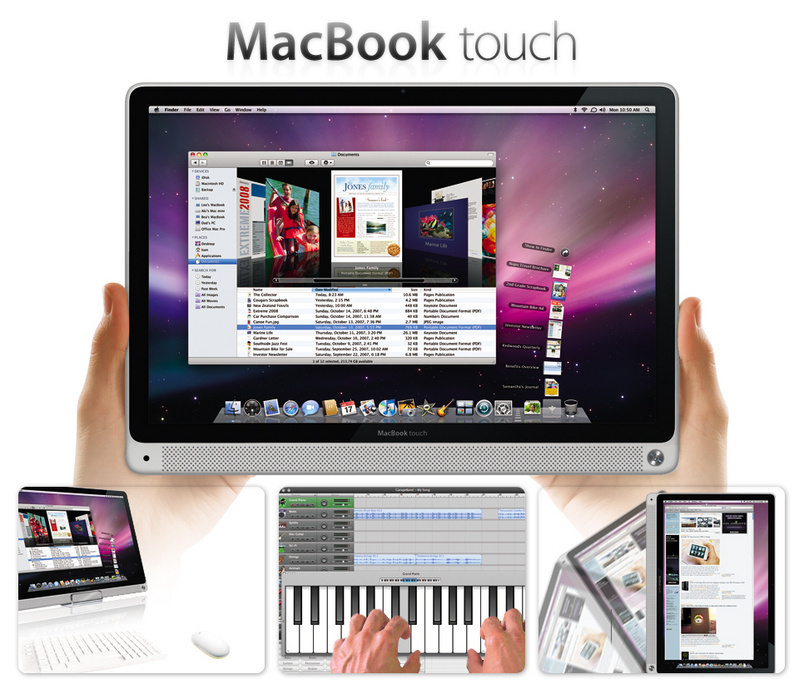My brother has posted an interesting item over at The Professor’s Notes, “A Cultural or Observant Mac?.” The first thing you should know is that back in the 80’s he went with the Commodore 64 [correction: Amiga, see his comment below] and, by 1987, I went with the Mac (he is 5 years older, so he began making purchasing decisions a bit before me). When he finally had to give up on the Commodore he went with Windows. I have been on an Apple machine ever since with only occasional regrets, never wishing to have a Windows machine except when the bank’s website would only work with IE Windows.
In today’s post the Professor wrestles with what makes a “true” Mac. So this is not about Apple/Mac fans who are often described as cultists, but rather a question of what is indeed the true nature of a Mac.
Here’s the conundrum:
If you are running Vista is it still a Mac?
The argument seems to be yes, since the hardware is the computer, then the Apple Mac computer is the hardware.
I would accept that a “true Mac” is the combination of the hardware with the software, but the introduction of running Vista (or XP) on the Apple hardware and still calling it a Mac makes murky the water.
Now, with the ability to run the Apple Mac OSX operating system on a number of other Intel based machines, and on a number of netbooks we face a new question:
“If a computer running Vista is still a Mac because the hardware is Apple’s, then is a non-Apple machine, running OSX not a Mac?”
My view is that what has set the Apple experience apart is the tight integration of hardware and software. Yes, it comes with a premium and precludes a lot of customization that some would like to have, but that is small price to pay for the almost bullet-proof experience that it provides from the vast majority of users. Mac users don’t have to worry about dll files or whether drivers will work with the Mac or not (so long as they exist, they work, although I am quick to point out that nothing is perfect and bugs will/do exist in any software and hardware).
My brother concluded with a religious analogy to frame his question:
I am left with another comparison to religion, and thus the title to this post. Just as we can talk about a “cultural Christian” or a “cultural Jew” (someone connected through the heritage but not through religious or spiritual beliefs) and we talk about the spiritual or observant adherents to those faiths, can we make the same statement about Macs?
Are there “Cultural Macs” (those connected through the heritage that is hardware and logo) and “Observant” or “spiritual” Macs, that have the indwelling of the holy OSX code?
As indicated above, I would suggest that it is a question of both orthodoxy and orthopraxy. The full (“true”) Mac experience is the combination of hardware and software, right belief and right action coming together. Thus a Mac running Vista (booted, not in VMWare) is like a Christian Buddhist, perhaps from the Christian tradition but now a syncretist. Running the Mac OS on a machine built for Windows would be akin to a young convert to Christianity, still struggling to over come the allure of the “flesh,” stumbling on the road to Glory.
Ultimately, however, I believe the focus should always be on the hard/software getting out of the way and allow the user to simply do what they need to get done. The curtain should be torn asunder so that all may enter.
In necessariis unitas,
In dubiis libertas,
In omnibus autem caritas




3 thoughts on “The spirituality of Macs”
In the interests of clarity…
I started with a TI 99/4A purchased at Dover AFB in August of 1983, and kept that running until at least 1988. At that time I switched to the Commodore Amiga (not the C 64–never owned one of those), enjoying the benefits of the marriage of color and a Graphical (windowed) interface, before either the Mac OR a (usable) MS Windows.
For a brief moment I did use the Commodore 64 that my in-laws had, to write, and print, my senior paper in the Spring of 1985. Ah the joys of .commands in word processors.
And of course I had a TI 99/4A about the same time and then an Atari 520ST.
In light of the religious analogies flying about, I’d just like to mention that I think it’s worth it to be what a friend of mine calls “platform agnostic.” That is, to each task the correct tool. For some things, I prefer OS X. For others, I switch immediately to Vista. It just depends on what I’m doing.
By the way, that having been said, I am currently in possession of a Mac. I use it also to run Vista. I call it a “Mac” because of its label, just as I call my home laptop a “Dell” and not a “PC.” In financial terms, the use of one machine to do the tasks of two saves the University some serious money, because in the old days, they had to buy two machines for all us techie types to do testing on. That has been much simplified. Interoperability, friends. That’s where it’s at in my book. 🙂
Also, if we’re going to date ourselves via our hardware, my first machine was a Radio Shack TRS-80 Model 1, complete with a cassette deck for loading the programs. 🙂 I remember how excited I was when we finally got the two external 5.25″ drives and I didn’t have to wait for the cassettes to load anymore.
Ah, those were the days… 😉